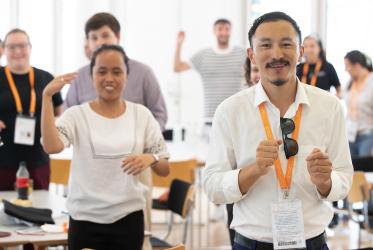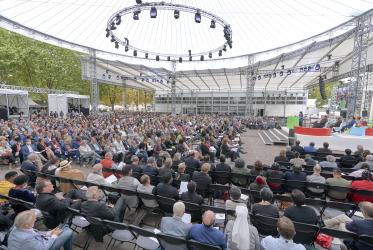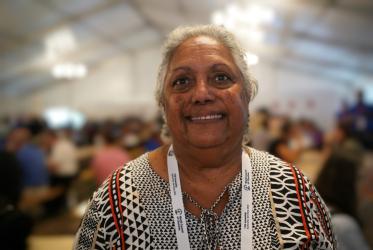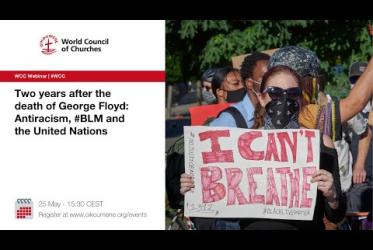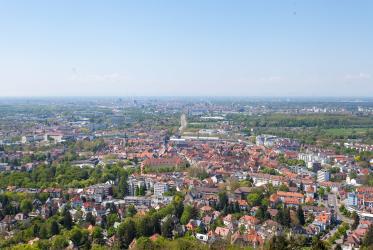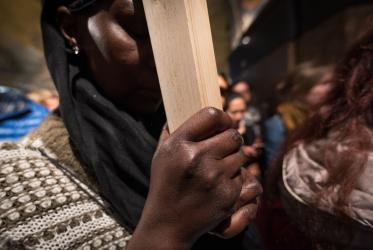Displaying 21 - 40 of 91
13 September 2022
Reflections from GETI underscore friendship coupled with knowledge
13 September 2022
Aspiring therapist opens his mind to different beliefs
13 September 2022
From hostility to hospitality: Closing prayers at Karlsruhe
09 September 2022
Bible studies bring ways to learn how Christ’s love moves us
06 September 2022
Indigenous women struggle for identity in Asia and beyond
05 September 2022
#ThursdaysinBlack: Stories flow from the Waterfall Tapestry
01 September 2022
How do churches address racism, really?
15 February 2022

